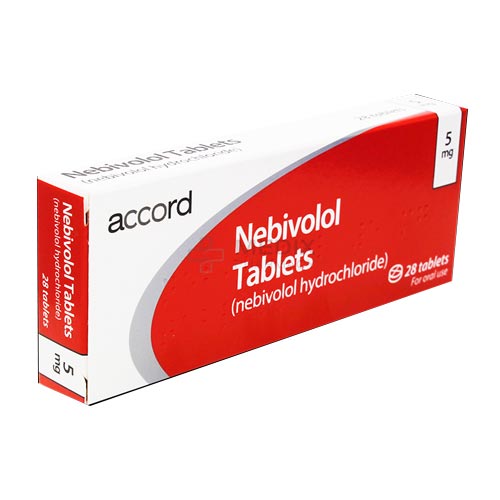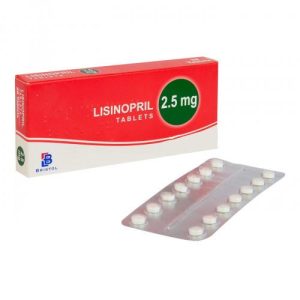Description
Nebivolol is a highly cardioselective vasodilatory beta1 receptor blocker used in treatment of essential hypertension. In most countries, this medication is available only by prescription. Beta-blockers affect the heart and circulation (blood flow through arteries and veins).
Nebivolol is used to treat hypertension (high blood pressure). Lowering blood pressure may lower your risk of a stroke or heart attack.
Nebivolol may also be used for purposes not listed in this medication guide.
Pharmacodynamics
Nebivolol is a competitive and highly selective beta-1 receptor antagonist with mild vasodilating properties, possibly due to an interaction with the L-arginine/nitric oxide pathway. In preclinical studies, nebivolol has been shown to induce endothelium-dependent arterial relaxation in a dose dependent manner, by stimulation of the release of endothelial nitric oxide.
Nitric oxide acts to relax vascular smooth muscle cells and inhibits platelet aggregation and adhesion.
Mechanism of action
Nebivolol is a selective β1-receptor antagonist. Activation of β1-receptors by epinephrine increases the heart rate and the blood pressure, and the heart consumes more oxygen. Nebivolol blocks these receptors which reverses the effects of epinephrine, lowering the heart rate and blood pressure. In addition, beta blockers prevent the release of renin, which is a hormone produced by the kidneys which leads to constriction of blood vessels.
At high enough concentrations, this drug may also bind beta 2 receptors.
Side effects
All medicines may cause side effects, but many people have no, or minor, side effects.Some medical conditions may interact with Nebivolol .
Tell your doctor or pharmacist if you have any medical conditions.
Side effects include: headache, tired feeling, nausea, stomach pain, diarrhea or sleep problems (insomnia).
The most common signs and symptoms associated with nebivolol overdosage are bradycardia and hypotension. Other important adverse events reported with nebivolol overdose include cardiac failure, dizziness, hypoglycemia, fatigue and vomiting. Other adverse events associated with β-blocker overdose include bronchospasm and heart block.
This is not a complete list of all side effects that may occur. If you have questions about side effects, contact your health care provider.



Reviews
There are no reviews yet.